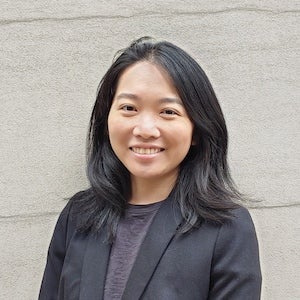Controlling the emergence of order out of disorder is an overarching goal in the engineering of biological and soft materials. An exciting direction in the computational design of soft materials incorporates ideas from information theory into these approaches, drawing upon the connection between thermodynamic entropy and information entropy. In this talk, I will consider an information-driven analysis of a continuous dynamical absorbing state model known as Biased Random Organization (BRO), in which overlapping particles are considered active and are repelled apart by a random distance. This results in a phase transition between absorbing states containing no active particles and active states where particles continue to be displaced. I will focus on the behavior of BRO in 2D, which produces two distinct active phases unlike in other dimensions. One active phase is crystalline, while the other is disordered and exhibits hyperuniformity at criticality, a form of "hidden order" characterized by vanishing density fluctuations. I will show how the three types of phase transitions found in 2D BRO are characterized with a computable information density approach, which quantifies changes in the system entropy using a data compression algorithm. I will conclude the talk with my outlook toward extending this approach to the computational design of self-assembling materials, illustrated by an example from molecular simulations of protein aggregation.

Ashley Guo is a Postdoctoral Associate in the Center for Soft Matter Research at New York University, where she works in the lab of Professor Paul Chaikin. Her current research focuses on studying the dynamical absorbing state model known as Biased Random Organization and characterizing the phase transitions and ordering that emerge in this model using an information theoretic approach. Ashley obtained her Ph.D. from the Pritzker School of Molecular Engineering at the University of Chicago, where she worked with Professor Juan de Pablo. Her Ph.D. research focused on molecular simulations of protein aggregation and the development of enhanced sampling methods aided by machine learning approaches. Prior to her Ph.D., she completed her B.S. in Chemical Engineering at Caltech.

